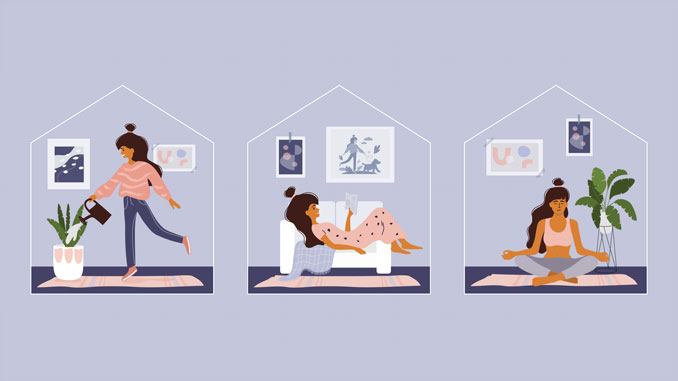
2020 has been a year. With everything going on around us, many are feeling overwhelmed, angry, sad, even hopeless. Self-care is always important, but living through a pandemic, being home from work or working from home, playing teacher and full-time caregiver to your children, and giving up social interactions only makes the need for self-care stronger.
“Many people equate success to what they have achieved, but, there is no control over the outcome of anything, you only have control over your input. So, try defining success based on you input, behaviors, and how you treat yourself and others,” says Shabneet Brar, M.D., a psychiatrist with San Joaquin General Hospital.
Most of what you may be feeling is normal—or as normal as anything is right now—but that doesn’t change the low we can feel from insomnia, irritability, stress, anxiety, and confusion. Take steps to improve your mental well-being and better equip yourself to serve others, including your family and work. If these feelings are not addressed in the here and now, they can have lasting effects that include alcohol and substance dependency or poor physical and mental health.
Dr. Brar recommends taking a break from the news and social media. Leave your phone in another room while you engage in an activity you enjoy such as reading a book or gardening. “If you really want to give yourself a break refrain from posting on your favorite social media post during this time,” she suggests. “This can be an empowering experience.”
Other ways to care for yourself during the pandemic—when some of your favorite self-care methods may be unreachable—are to exercise, practice yoga or meditation, pick up new hobbies, maintain a good sleep schedule, or create your own home spa. If anxiety and stress during the pandemic are interfering with your daily activities, call your healthcare provider. Talking to someone can help.
If guilt over taking care of yourself is causing you stress, step back and reevaluate how you look at self-care. “Self-care equals self-respect. Taking care of yourself leads to improved self-confidence, self-esteem, and self-worth,” Dr. Brar says. Not to mention, we can’t pour from an empty cup. Prioritizing ourselves allows us to perform better in other parts of our lives and show up for those who need us.

